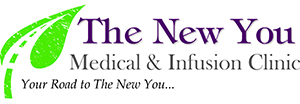Akathisia Treatment in Fort Worth, TX

Do you take mental health medications? Do you fidget, walk in place, feel nervous or anxious, or have feel an intense urge to move? It may be akathisia, a common side of effect of these medications.
While akathisia isn't life-threatening, it can be difficult to live with and can affect your happiness and well-being. To speak with a specialist today about treating akathisia in Fort Worth, call (817) 203-2760 or contact Ms. Jessica Stangenwald online.
What are the symptoms of akathisia?
Akathisia's main symptom is a strong feeling of restlessness and the intense need to move around. It typically affects your legs, especially when you're sitting down.
Other common symptoms of akathisia include:
- rocking back in forth
- pacing
- repeated head bobbing
- muscle kinks
- poor posture
- sense of inner discomfort or tension
- shifting your weight from foot to foot
- crossing and uncrossing your legs
- squirming or fidgeting
- making strange sounds
- irritability
- impatience
- anxiety and panic attacks
There are different types of akathisia:
- acute: occurs shortly after you start taking medication and resolves within 6 months
- chronic: lasts for 6 months or longer
- tardive akathisia: may not appear until months or years after you begin taking medication
- withdrawal: typically occurs within 6 weeks of switching or ceasing medication
Seeking professional help for akathisia is crucial because untreated akathisia can lead to distress, disruptive behavior, depression, anxiety, and self-esteem loss.
What causes akathisia?
Although medical research hasn't yet discovered the exact cause of akathisia, it's known that this condition is a side effect of certain antipsychotic medications.
Akathisia is more likely to occur when you start taking a high dose of medication or increase your dose suddenly instead of starting with a small dose and increasing it gradually. It's also more likely to occur if you stop taking your medication suddenly.
Antipsychotic drugs that typically cause akathisia include:
- chlorpromazine
- droperidol
- fluphenazine
- flupenthixol
- molindone
- haloperidol
- loxapine
- perphenazine
- pimozide
- prochlorperazine
- thiothixene
- trifluoperazine
- selective serotonin reuptake inhibitors (SSRIs)
- calcium channel blockers
- migraine medications
- anti-nausea drugs
- drugs that treat vertigo
- pre-surgical sedatives
Not all patients prescribed these medications develop akathisia. It can also occur during withdrawal from illicit drugs like cocaine, methamphetamine, barbiturates, or opioids like heroin or morphine.
Akathisia may also occur during conditions like:
- vitamin B deficiency
- Parkinson's disease
- encephalitis (brain inflammation)
- traumatic brain injury
- alcohol withdrawal
How is akathisia diagnosed?
According to the journal Current Neuropharmacology akathisia continues to be a significant challenge in current psychiatric practice. Medical professionals still have trouble detecting it and there is no consensus on its neurobiological causes.
To diagnose akathisia, your healthcare provider will first examine you and review your medical history and note any fidgeting, crossing and uncrossing your legs, tapping your feet, and rocking back and forth.
He or she will try to rule out other conditions that may cause similar symptoms like:
- restless legs syndrome : also causes an uncontrollable urge to move your legs, but mostly at night as well as leg pain
- tardive dyskinesia: also an involuntary side effect of antipsychotic drugs that causes repetitive motions like blinking, grimacing, and squinting
- anxiety : easy to mistake for akathisia, because it makes you feel restless and uneasy
- insomnia: doesn't typically cause constant fidgeting or movement, but can occur if you have trouble sleeping
- ADHD , agitated depression, mania, and psychosis: can have physical symptoms similar to akathisia
Akathisia Treatments
As with any medical procedure, results of akathisia treatments vary from patient to patient, depending on age, genetics, condition severity, as well as environmental and health factors. Consult your healthcare practitioner before embarking on your treatment journey.
The following pharmaceutical, nutritional, and herbal treatments may present contraindications with one another, and with other medical conditions. Always consult a health care professional before deciding which treatment to try first.
Pharmaceutical medication
No definitive treatment has been established for akathisia despite numerous preclinical and clinical studies. In its July 2017 issue the journal Current Neuropharmacology concluded: "Currently, there are limited therapeutic options for the clinical practice and the evidence supporting the most widely used treatments (beta blockers, anticholinergic drugs) is still absent or inconsistent".1
Those most widely used treatments are usually prescribed by the medical professionals who prescribed the initial antipsychotic medication. If adjusting dosage doesn't treat symptoms, they often switch to one of the following potentially addictive medications:
- beta-blockers: these block adrenaline production which causes your heart to beat more slowly with less force; side effects include: depression, shortness of breath, loss of sex drive, insomnia, slow heartbeat, joint pain and memory loss or confusion
- benzodiazepines: these enhance the effect of GABA neurotransmitter for a sedative effect; side effects include impaired thinking and coordination, blurry vision, slurred speech, and addiction; ask your healthcare provider how grapefruit and grapefruit juice affect this medication
- anticholinergics: these inhibit nerve impulses by blocking acetylcholine from binding to its receptors on certain nerve cells; side effects include blurry vision, decreased sweating, delirium, memory loss – has been linked to increased risk of dementia
- antidepressants: these balance neurotransmitters in the brain; side effects include: weight gain, insomnia, blurred vision, agitation, erectile dysfunction and decreased libido and orgasm
- Levodopa (Larodopa) and carbidopa-levodopa (Sinemet): these Parkinson's disease medications may raise dopamine levels in the brain area that controls movement; side effects include mild nausea and vomiting, constipation, dry mouth, blurred vision, muscle twitches, dizziness, anxiety, and drowsiness; side effects of carbidopa-levodopa include dark sweat, urine, or saliva, mild nausea, dry mouth, loss of appetite, heartburn, headache, constipation, insomnia, cold symptoms, numbness, and muscle pain
Counseling and Stress Management
Depression and anxiety can increase your risk of akathisia. To prevent these mood-related conditions, work with a mental health professional who offers cognitive behavioral therapy (CBT), which helps identify and alter troubling thoughts that lead to destructive behavior. Research shows that therapy and behavioral interventions can help reduce akathisia risk factors and symptoms once they have begun.
Be sure to describe how your symptoms make you feel, and what you'd like to accomplish in therapy. Many patients find that keeping a journal is helpful. There are many support groups, both in-person and online, that will be happy to accept you and offer dedicated, compassionate guidance, support, and even friendship.
Your mental healthcare provider may explain the benefits of releasing endorphins into your bloodstream with:
- acupuncture
- massage therapy
- meditation and deep breathing
- yoga
- stretching
- exercise
Essential oils for stress relief include:
- chamomile: been placebo-controlled studies have shown anti-stress and anxiety benefits beyond just the placebo effect; side effects include drowsiness and, in larger doses vomiting
- ylang ylang: reduces pain and inflammation while alleviating stress
- bergamot: increased gamma-aminobutyric acid for stress relief6; skin use increases vulnerability to skin cancer, and may cause blisters, scabs, pigment spots, rashes, and sun sensitivity
- lavender: research has discovered anxiolytic, mood stabilizer, sedative, analgesic, and anticonvulsive and neuroprotective properties; side effects include constipation, headache, nausea, and skin irritation
Nutrition and supplement therapy
For therapies that are addiction risk free and integrate akathisia treatment into whole health a nutritionist can customize a diet and supplement regimen for your body's unique needs.
Supplements
For over a decade, dozens of studies2 have shown that vitamin B6 may be an effective akathisia treatment.3 How exactly this vitamin effects neurotransmitters and free radicals in the brain is still being studied. The nutrient can be prescribed as a supplement (for quantity control) but is also found in most foods but is more prevalent in both meat and starches like potatoes, turkey, or beef. Side effects of vitamin B6 include nausea, vomiting, stomach pain, loss of appetite, headache, tingling, sleepiness. Long-term use can cause brain and nerve problems.
Studies have also found that magnesium supplementation (in oral, gel or spray form) may be able to prevent and reverse movement disorders by regulating how brain cells form critical connections. This nutrient has been shown to support brain plasticity and cognitive function.4 A Massachusetts Institute of Technology study found that magnesium-L-threnotate boosted brain magnesium levels by about 15%.5 Side effects include nausea, cramps, soft stool, and diarrhea.
Adaptogenic herbs
Herbs like rhodiola and ashwagandha can hack some patients stress response by stabilizing their hypothalamic, pituitary, and adrenal glands. Side effects of ashwagandha include stomach upset, diarrhea, and vomiting.
Do not take ashwagandha if you're pregnant, diabetic, have low or high blood pressure, stomach ulcers, thyroid disorders or auto-immune diseases, as it can dangerously interact with these conditions and medications used to treat them. Side effects of rhodiola include dizziness, dry mouth, or excessive saliva production.
A consistently healthy diet can alter brain chemistry and improve mood. Your nutritionist may suggest: healthy fats like wild-caught fish or coconut oil, high-fiber vegetables and fruits, and protein-rich foods like organic eggs and grass-fed poultry and meat. Limit consumption of processed grains, sugar, refined vegetable oils, caffeine, and alcohol has changed many lives.
These treatments may have contraindications with a variety of unrelated conditions like:
- pregnancy
- breast feeding
- surgery
- asthma
- diabetes
- narrow-angle glaucoma
- unusual skin lesions
- current or past malignant melanoma
- heart disease
- high and low blood pressure
- past history of heart attack
- coronary artery disease
- chronic obstructive pulmonary disease (COPD)
- liver disease
- kidney disease
- hormone diseases
- stomach or intestinal ulcer
- depression
- mental illness
- multiple sclerosis (MS)
- rheumatoid arthritis (RA)
Reserve Your Appointment Now
Akathisia is a common side effect of antipsychotic medication, but you don't have to suffer from restlessness and tension. Because each person's condition is unique, work with your health care professional to find a treatment or treatments that treat your specific akathisia.
To speak with an akathisia specialist today in Fort Worth, call (817) 203-2760 or contact Ms. Jessica Stangenwald online.
Sources:
1. Haitham Salem, Caesa Nagpal, Teresa Pigott, and Antonio Lucio Teixeira. Revisiting Antipsychotic-induced Akathisia: Current Issues and Prospective Challenges. Curr Neuropharmacol. 2017 Jul; 15(5): 789–798.
2. Lerner V1, Bergman J, Statsenko N, Miodownik C. Vitamin B6 treatment in acute neuroleptic-induced akathisia: a randomized, double-blind, placebo-controlled study. J Clin Psychiatry. 2004 Nov;65(11):1550-4.
3. Sethuram, Karthik, and Joanna Gedzior. "Akathisia: Case Presentation and Review of Newer Treatment Agents." Psychiatric Annals, vol. 44, no. 8, 2014, pp. 391–396., doi:10.3928/00485713-20140806-07.
4. Kronbauer M1, Metz VG2, Roversi K1, Dias VT1, de David Antoniazzi CT1, da Silva Barcelos RC1, Burger ME. Influence of magnesium supplementation on movement side effects related to typical antipsychotic treatment in rats. Behav Brain Res. 2017 Mar 1;320:400-411. doi: 10.1016/j.bbr.2016.10.049. Epub 2016 Nov 2.
5. Slutsky I, Abumaria N, Wu LJ, et al. Enhancement of learning and memory by elevating brain magnesium. Neuron. 2010;65(2):165-77.
6. Saiyudthong S1, Marsden CA. Acute effects of bergamot oil on anxiety-related behaviour and corticosterone level in rats. Phytother Res. 2011 Jun;25(6):858-62. doi: 10.1002/ptr.3325. Epub 2010 Nov 23.
The New You Medical & Infusion Clinic
Address
100 Grapevine HwyHurst, TX 76054
(817) 203-2760
https://www.newyoumedclinic.com/
Hours
Mon:
10:00 am - 6:00 pm
Tue:
10:00 am - 6:00 pm
Wed:
10:00 am - 6:00 pm
Thu:
10:00 am - 6:00 pm
Fri:
Closed
Sat:
Closed
Sun:
Closed


